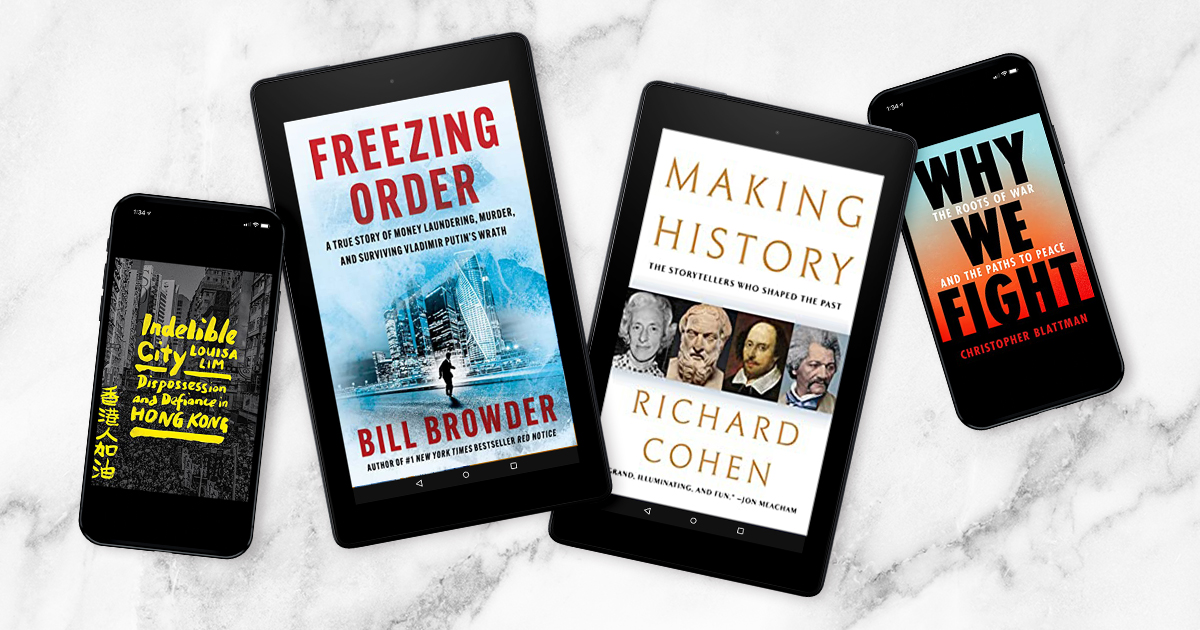The best history of AprilChris Schluep | April 4, 2022The books in the best history of April are all of a theme. Usually, the monthly list includes a few titles that could be considered less historical, more esoteric. For instance, a book about the history of the mosquito comes to mind (it’s an important, if not immediately obvious, history by the way). But this month the books are all very historical. Is that what happens when you feel like you are watching history play out in real time on your television, newspaper, or phone every night? Maybe.Below are a few of our favorites, and be sure to check out the full list. Happy reading.I chose this book as my personal pick for the month of April—because it’s a true story, it reads like a thriller, and there might not be a more timely or
Topics:
Chris Blattman considers the following as important: book review, Popular Press
This could be interesting, too:
Angry Bear writes The World without Us
Bill Haskell writes Book Review with Excerpts
Joel Eissenberg writes The People’s State (book review)
Joel Eissenberg writes War and Punishment
The best history of April

The books in the best history of April are all of a theme. Usually, the monthly list includes a few titles that could be considered less historical, more esoteric. For instance, a book about the history of the mosquito comes to mind (it’s an important, if not immediately obvious, history by the way). But this month the books are all very historical. Is that what happens when you feel like you are watching history play out in real time on your television, newspaper, or phone every night? Maybe.
I chose this book as my personal pick for the month of April—because it’s a true story, it reads like a thriller, and there might not be a more timely or compelling narrative being told this month. You may have heard of Vladimir Putin. The author Bill Browder—in going after the murderers of his Russian lawyer as his company was caught up in a Russian money laundering scheme—truly put his life on the line and encountered some very dangerous people who all led back to Putin himself. This is a fascinating real-life tale with a direct connection to the world events playing out today.
This is another book that caught my attention this month. If you want to understand why nations do—and usually don’t—go to war, watch what’s happening in the news and try to grasp the destruction of life, property, culture, and accord that is playing out in Russia’s invasion of Ukraine. Then, to fully grasp the workings of conflict and war, read this book. You will carry the lessons with you.
We tend to think of history as a series of objective dates and events, but history is shaped by the tellers themselves—by what they decide to tell, and by how they decide to tell it. Richard Cohen’s book provides thoughtful and thought-provoking coverage of people we’ve all heard of, all of whom have contributed to our understanding of history; but he goes deep into their motivations, biases, and ideologies to give us a deeper, richer understanding not just of the story tellers who tell our story, but of history itself.
Some places, some cities, just stand out in the world. Hong Kong, which was taken by the British in 1842 and controlled by that country until 1997 when it was returned to China, is one such place. The reporter and author Louisa Lim grew up as the half-Chinese, half-English daughter of Hong Kong parents. She traces the history of this fascinating place, defining not just the events that shaped it (as well as mainland China and Britain) but also helping to explain to us the particular mindset of a place that has existed between two worlds for more than a century—and what that may mean for the future.
